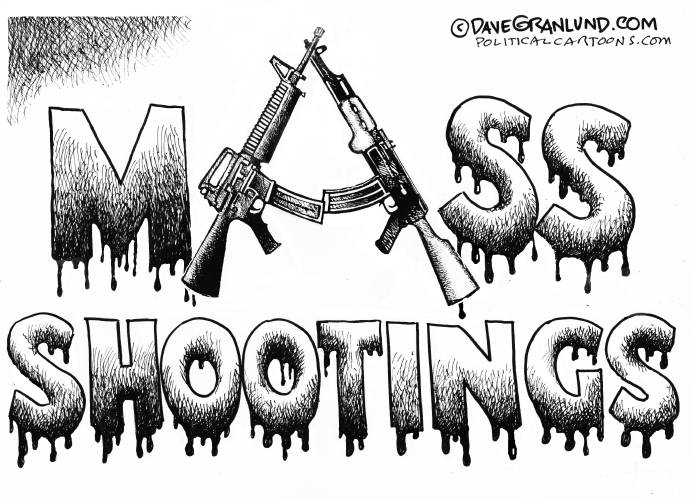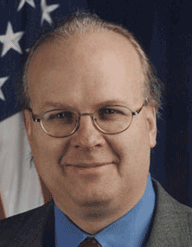Dharma help us, but Marianne Williamson wrote an op ed about the gun violence crisis. I actually agree with some of it. This includes the part in the second paragraph where she says he must break the influence of money in politics; can’t argue with that.
Sometimes she gets too wound up in saying something clever rather than sensible. “It is not just our gun policy but our politics that fails to free us of this insanity.” Um, sweetums, “gun policy” and “politics” are kind of inextricably bound together. Then she says,
America does not just have a gun crisis; it has a cultural crisis. America will not stop experiencing the effects of gun violence until we’re ready to face the many ways that our culture is riddled with violence.
Yes?
Our environmental policies are violent toward the Earth. Our criminal justice system is violent toward people of color. Our economic system is violent toward the poor. Our entertainment media is violent toward women. Our video games are violent in their effect on the minds of children. Our military is violent in ways and places where it doesn’t have to be. Our media is violent in its knee-jerk shaming and blaming for the sake of a better click rate. Our hearts are violent as we abandon each other constantly, breeding desperation and insanity. And our government is indirectly and directly violent in the countless ways it uses its power to help those who do not need help and to withhold support from those who do.
Right. But there is one critical word that doesn’t appear anywhere in Williamson’s op ed. That word is greed. Our environmental policies cater to greed rather than protection. Greed is the real creator of poverty, IMO. I also would argue the military policies and most of the other stuff Williamson complains about are rooted in greed. If there is violence, it is greed fueling the violence. Toss in some ignorance, especially bigotry, and fear with that and you’ve accounted for it all. Violence is just a by-product. And government isn’t mitigating the effects of greed because of corruption.
Williamson’s Big Idea is to create a Department of Peace to battle the culture of conflict, which amounts to more wasted money, IMO. The eternally flakey Dennis Kucinich has been pushing a Department of Peace for a long time; these two should get together. But that’s the problem with the New Agey types; they are big on how everybody should be more about love and kindness, but they have no idea why they aren’t or how to bring about change. Williamson’s general method is to snarl at people about how they should be nicer. See also this passage from a New York Times article about Williamson —
She finished her speech in New Hampshire to great applause and asked for questions, but nobody wanted to know how “a politics of love,” as she called it, would handle, say, President Vladimir Putin’s annexing Crimea, or how it would prevent a mass shooting, which were things she had thought about deeply and had specific and elaborate plans for. They didn’t want to know about her Department of Children and Youth or her Department of Peace. No, they wanted self-help. A woman raised her hand and said she didn’t know what to do about her trauma and her rage these days — how she couldn’t find forgiveness for the people who voted for Trump, even though those people weren’t exactly asking for it. “It’s like I’ve been infected,” the woman said. “How do I manage that?”
Williamson told her she has no time for people traumatized by the election.
Well, then, I have no more time for Williamson, and with any luck she soon will fade back into the pop culture woodwork. So let’s go on.
What’s killing the United States and the planet is greed and corruption. Gun violence is just a by-product; it’s greed and corruption that keeps turning up the flames of gun-rights zealotry, making us by far the most heavily armed citizenry on the planet. The United States has 5 percent of the world’s populations and an estimated 41 percent of the world’s civilian-owned firearms.
And that’s why we have a gun violence problem. I suspect any other group of people as heavily armed as we are would be shooting each other a lot, too. The presence of guns makes shooting a lot more likely. And there is a plausible argument to be made that the presence of guns stokes violent behavior, a phenomenon known in social psychology as the “weapons effect.”
As long as our knee-jerk reaction to gun violence is to buy more guns, our gun violence problem is just going to get worse. The problem of guns is guns.
In a 2015 study using data from the FBI and the Centers for Disease Control and Prevention, for example, researchers at Boston Children’s Hospital and Harvard University reported that firearm assaults were 6.8 times more common in the states with the most guns versus those with the least. Also in 2015 a combined analysis of 15 different studies found that people who had access to firearms at home were nearly twice as likely to be murdered as people who did not.
In the minds of gun activists, strangers are eternally plotting to break into their homes and kill them, so they need a gun. I looked; the enormous majority of home break-ins are burglaries that take place when the residents are not at home. According to this, about 86 to 100 people a year in the U.S. are murdered by burglers who broke into their home, possibly, but the way the crime data is reported makes it all kind of murky. But let’s say 100 Americans a year are murdered by strangers invading their homes.
(Also, FYI, according to FBI crime statistics, where the relationship between the victim and perpetrator is known, only about 10 percent of homicide victims are killed by complete strangers. Apparently it’s the people you know you’ve got to watch.)
Compare/contrast to the nearly 2,900 children and teens (ages 0 to 19) who are shot and killed in the U.S every year, many of whom died by the gun their parents bought “for protection.” Nearly 15,600 are shot and injured. But you can’t tell the gun fanatics that having a gun in their home is a danger to their family. They need to “for protection.” They will not look at the data. They will not listen to reason. They have to have that gun.
Where is that fear coming from? At least some of it is being manufactured by gun lobbyists and the NRA, I’m sure. Our children have to die so that some people can make more money.
Yes, it’s madness, but the first path out of the madness is to reduce the prevalence of guns. I don’t see any way around that. As long as Americans are acquiring more and more guns, they are going to be more and more violent.
How to reduce the number of guns in circulation is another question, and I am sure there will be no magic bullet. And, ultimately, the greed has to be called out and punished, and we need a functioning government to do that. Well, good luck to us.


